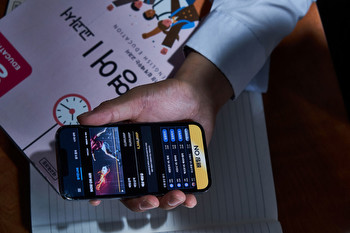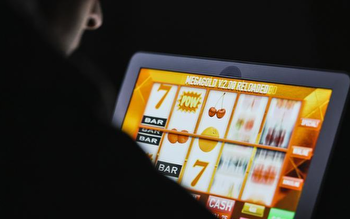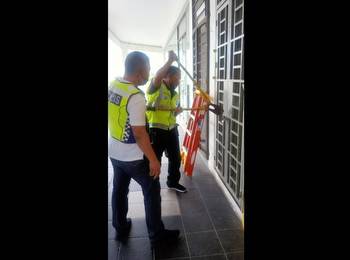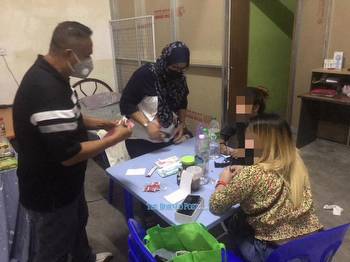Youth cybergambling soars: 1 in 3 offenders are teens

Over one in three online gambling offenders caught during the recent crackdown were teenagers, the National Police Agency (NPA) said, Thursday, highlighting concerns over a rising number of young people being exposed to illegal gambling sites and becoming addicted.
According to the National Office of Investigation of the NPA, 2,925 people were nabbed during a six-month crackdown on online gambling targeting adolescents, from Sept. 25 last year to March 31. Among them, 1,035, or 35.4 percent, were teenagers.
Of these teenagers, 798 were high school students, 228 were middle school students and seven were university students. Two elementary school students were also among those caught, with the youngest being a 9-year-old who bet 10,000 won.
Almost all teenage offenders — 1,012, or 97.8 percent — were caught participating in gambling activities, while 12 were found to be operating gambling websites.
Police referred 566 of the 1,035 teenagers to specialized counseling centers with the consent of both the individuals directly involved and their parents. Additionally, 75 adults have been imprisoned, and criminal proceeds totaling 61.9 billion won ($45 million) have been confiscated during the crackdown.
Regarding how gambling sites attract teenagers, police said that middle and high school students accessed the sites primarily through invitations from friends. Smartphone messages, online ads and social media promotions also played a significant role in enticing teenagers into online gambling.
Regarding the types of gambling, 41.9 percent of the teens admitted that they played baccarat, followed by sports gambling at 19.8 percent, casino games at 17.1 percent and powerball or slot machines at 14.7 percent.
The simple registration processes, by signing up for memberships with bank accounts under their names or with gift vouchers, contributed to teenagers engaging in gambling activities, police said.
During this crackdown, it was revealed that over 1,000 financial accounts under the names of adolescents were used for managing gambling funds and related activities.
Police noted that gambling is often misinterpreted as a harmless game among teens, particularly with the rise of cybergambling programs that resemble simplistic gaming interfaces.
Recently, the Daejeon National Police Agency's cyberinvestigation team arrested eight operators of gambling sites who manipulated programs to determine wins and losses in the shortest amount of time, using rules like odd-even, ladder and penalty kicks. Among them, six individuals were arrested and police found 33 juvenile gamblers.
Police plan to resume the six-month crackdown on online gambling targeting teenagers starting in May.
"Given the concerns of youth gambling, we will rigorously enforce the law against both gamblers and operators of gambling sites,” said Woo Jong-soo, head of the National Office of Investigation.


































